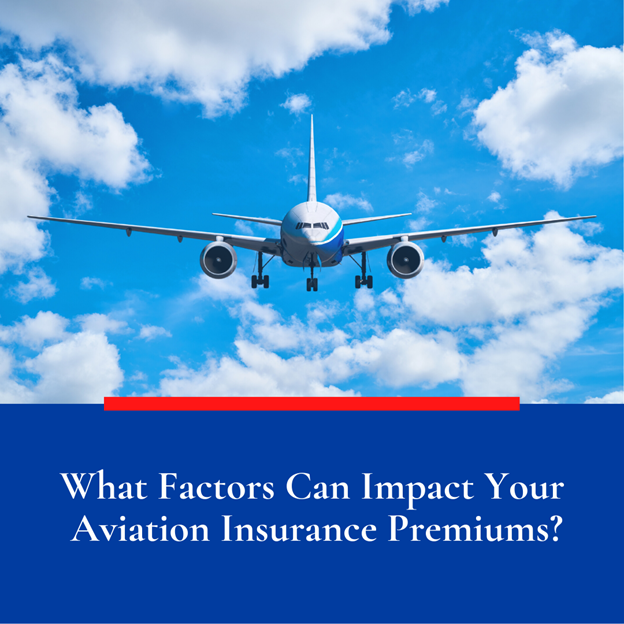What Factors Can Impact Your Aviation Insurance Premiums?
Jul 11, 2022

Whether you own your own aircraft or operate one, you’ll need to have aviation insurance. How much your insurance costs depends on a variety of different factors. These factors can range from the number of flight hours you have in a particular type of aircraft to how much insurance you need.
#1
Whether You Own or Rent the Aircraft
Whether you own or rent your aircraft can impact your insurance premiums. If you own your own aircraft, you’ll need full coverage for your aircraft:
- In-flight insurance
- Ground risk hull (non-motion) insurance
- Ground risk hull (motion) insurance
- Public liability insurance
- Passenger liability insurance
You still need to be insured if you’re renting an aircraft, but you wouldn’t have to include things like ground risk hull insurance in your premiums.
#2
Number of Flight Hours
The number of flight hours you have can also affect your insurance premiums. The more flight hours that you have in the specific aircraft that you’re insuring yourself to fly, the better your premiums may be.
Some insurance companies may actually have a minimum number of flight hours that you have to have before they’ll consider insuring you at all.
Flight hours are important whether you rent or own your aircraft. If you own but don’t fly it yourself, then the flight hours of your pilot would instead impact your premiums.
#3
How Frequently You Fly

If you haven’t flown in a while, then your insurance company may start to worry that your flying skills are getting rusty. Flying frequently can not only keep your piloting skills in top shape but also show your insurance company that you’re keeping your flying ability sharp.
#4
Aviation Certifications
Different types of aircraft may require different certifications to fly. The more different certifications you or your pilot have, the lower your premiums could be. This is because by having multiple certifications, you’re showing the insurance company that you’re a versatile and safe pilot.
#5
How Recently You Received Training
Even experienced pilots can benefit from refresher training. An insurance company may consider you a safer bet if you regularly train to improve and refresh your flying skills. This is especially important for the specific aircraft you’re insuring. Your insurance company wants to know that you’re as safe and skilled as possible in the specific plane they’re insuring.
#6
The Size and Type of the Aircraft
The type of aircraft you’re insuring also matters. The larger the aircraft, the more it will cost to repair. On top of that, larger planes can also carry more passengers, which means that you would need to have more passenger liability insurance in order to be fully covered. Whether your aircraft is a jet or a turboprop may also affect your premiums.
#7
Flying Club Membership
Members of flying clubs may be eligible for insurance discounts. If you’re not already a member of one, it could be worth looking into to reduce your premiums.
#8
Where You Store Your Aircraft

If you own your aircraft, then where you store it matters. You need ground risk hull insurance that covers anything that could happen to the plane while it’s on the ground, whether it’s in motion or not. If you store your aircraft in a hangar, then it’s better protected from the weather and anything else outside that could damage it while it’s grounded. This could help to lower the risk to your plane and therefore your premiums.
#9
Having Claims Against Your Insurance Policy
Just like with any insurance, the fewer claims you have against your policy, the lower your insurance premiums may be. If you have to make a claim for any reason, then the amount you pay for your premiums may increase.
KEEP UP WITH THE LATEST IN AVIATION NEWS
Get the latest updates about the aviation industry on our blog.
For informational purposes only.

